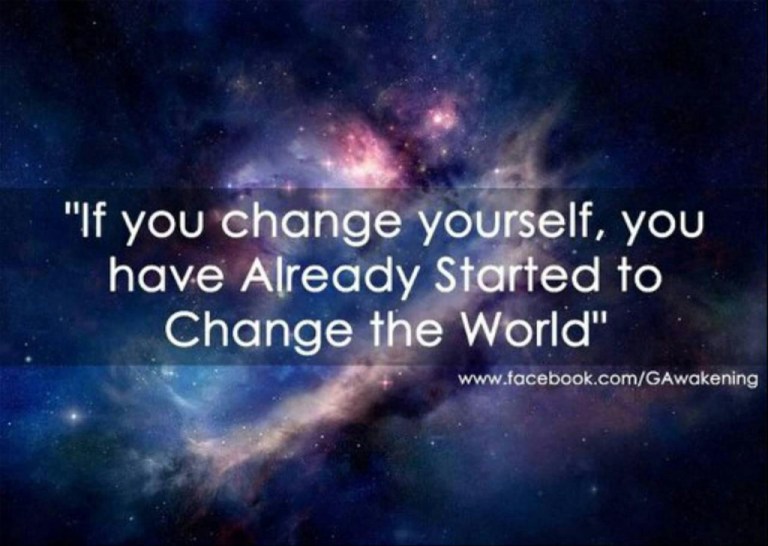So many of us are feeling the call to “make a difference” in the world. We are recognizing that meaningful contribution is actually a part of our overall sense of wellbeing. We are looking for deeper meaning and powerful connection with other humans on this path of evolution.
Welcome to the first of many discussions in the Conscious Service Series!
Millions of people serve humanity through their professions in healthcare and human services. Millions more express this service in response to the needs of their loved ones. There is a growing part of the population who feel called to serve as a direct expression of their spirituality. I use the term Vocations of Service to capture the significant roles and all the iterations through which this call to serve each other manifests in the world.
But what does it mean to serve?
Service inherently seems to imply an externalized act. We identify sacrifice and selflessness as qualities of service in the world. And then we wonder why we have an epidemic of burnout in our systems of healthcare and social services.
The World Health Organization recently officially recognized burnout in its handbook, citing it as a syndrome resulting from chronic workplace stress. For Service Providers and Change Makers, the risk of burnout is amplified, as their role is not isolated to the workplace and involves a great deal of emotional investment and labor.
Did you know…
● In 2019, the Bureau of Labor Statistics reported “Social workers have one of the highest rates of injuries and illnesses of all occupations.”
● Approximately 1/3 of nurses report high levels of burnout (De Keyrel, 2018).
● In the past five years, over 40 million family caregivers provided 37 billion hours of care for loved ones. The value of this care is estimated at $470 billion. Half of adult caregivers say it’s moderately or very difficult to balance work and caregiving. Three-quarters of the respondents found it to be stressful, and more than half found it to be overwhelming (Aging in Place, 2020).
Ultimately, in attempts to “protect” ourselves from burnout and exhaustion, we have encouraged those in service to others to engage in practices designed to “separate and detach” from the very people and situations we are there to respond to.
Don’t get too emotionally involved, they say. Be sure to have strong boundaries. Don’t bring your work home with you at the end of the day. Toughen up ~ don’t let the traumas of the world impact you. Remember, it’s not about you ~ it’s about them.
Perhaps, well-intentioned guidance ~ however, at best, useless and at worst, destructive.
The heart of service is relationship, connection, presence and engagement. It is therefore impossible to detach in this way without losing the very elements required to be of service in the world.
But there is another way. It is time to raise our consciousness when it comes to how we define and enact the energy of service. It is time to recognize the inclusive nature and reciprocity within acts of service. It is time to celebrate the gift that serving offers not only for those served, but for the server. No sacrifice required.
Service and Self-Compassion ~ It is The Saving Grace
My vocation has always been a huge part of what brings me joy and a sense of fulfillment in my life. For more than 4 decades I have worked in human services and adult education.
As mentioned above, Vocations of Service come with a high level of emotional labor and a high risk of burnout. What I have learned over the years though is that burnout is not inevitable. It is preventable. In fact, we can find a sweet spot where thriving in service becomes a very real possibility.
I have recently read articles by helping professionals that highlight some of the biggest challenges we face within health care and human services systems.
An article written by a junior doctor in Sydney, Three of my colleagues have killed themselves. Medicine’s dark secret can’t go on, states, “Medical training has long had its culture rooted in ideals of suffering. Not so much for the patients – which is often sadly a given – but for the doctors training inside it.”
The author goes on to review standards of practice that clearly perpetuate an outdated belief that service involves self-sacrifice. He writes, “To be a good doctor you must work harder, stay later, know more, and never falter.” In other words, you are expected to be superhuman, to always have your “stuff” together, and to put everyone before yourself. The epitome of self-sacrifice.
Suicide. Could there be a more profound demonstration of self-destruction? I have been personally impacted by suicide when we lost my nephew 14 years ago. I can recall thinking at one point, “If only he knew how much he was loved.” And I realized that he probably did know it, but couldn’t feel it or receive that love because he did not love himself. Steven had not developed the capacity for self-compassion ~ the very antidote that could have eased his depression and suffering.
Most of the people I know who have chosen a Vocation of Service expect that they will experience a career in connection and service to others and don’t realize that connection and service to self is part of that package. They don’t realize it because most of the time no one has ever told them that.
This is often very true in the human services sector as well. I read another article several months ago where a social worker described her suicide attempts after many years working in the child welfare system. Her intense struggle ensued for a number of years in silence, as she feared how she would appear to colleagues, friends and family if she spoke her truth.
A few months earlier, I came across an article where the author ~ a social worker ~ spoke of a felt pressure so intense that it was common to forget to even take a bathroom break throughout the day.
This kind of work environment would take its toll on anyone. And far beyond anything that a good night’s sleep, a super food smoothie and a jog around the block are going to alleviate.
It appears a deeply rooted paradigm shift must occur in order to see our systems of healthcare and social services transform from dysfunction to vibrancy.
I could go on and on about changes in preparatory training, professional development, organizational structures, funding challenges, and other external influences.
I’m not going to do that … yet.
The quickest route to shifting paradigms begins within us.
The truth is that my vocation of service hasn’t always been a source of joy in my life. Over 40 years, I have also come face to face with exhaustion, frustration, and disillusionment. Beneath that was a desire to continue to discover what brought me a sense of fulfillment and what held meaning for me personally.
As I continue to explore this path, I am always led back to my desire to be of service and how that manifests in my life. It has also led me to make significant changes and shifts in my life that were in alignment with my desire to feel joyful.
Amazing ~ the more joy I have access to within myself, the better my view of the external world and the people in it. Really, everyone just appears to be more friendly, easy going, and loveable. Who knew?
Self-care has become something that has emerged as a result of feeling deeper levels of self-love and self-compassion. It just flows. Habits I have wanted to release are leaving with ease and new ones are falling into place without force.
In addition to exploring the role of self-love and self-compassion in this Conscious Service series, we will also examine the importance of enlightened communication, transformative relationships, co-creating community, personal responsibility and freedom, self-connection, systems transformation and so much more!
Join the Conversation
This is an open invitation to weigh in on the discussion.
- Are you a Service Provider?
- How have you experienced the energy of service?
- How do you engage in self-compassionate self-care?
- What do you know now that you wished you knew when you first started out?
- Perhaps, you are a student preparing to enter the healthcare or human services system or a seasoned Service Provider. What kind of transformation do you want to be part of?
We have a long way to go so pour your heart out. Let’s talk about the real challenges and the real solutions. Become a contributor here. Use the tag #consciousservice and reach out to me, Elizabeth Bishop, here to share your viewpoint. Comment below and let me know if there’s something in particular you would like me to address in future articles. Let’s create a paradigm shift that redefines service in our modern world and turbulent times. And come back to this space often. This is a HUGE conversation and we’re just getting started!


